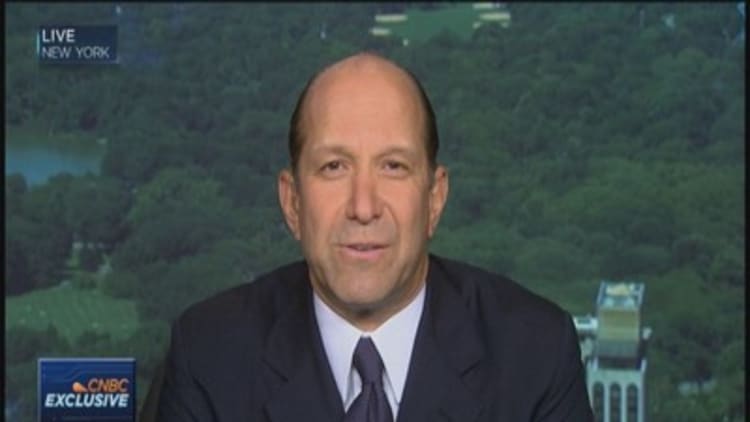
Expect increased market volatility now that the Federal Reserve has stopped its bond-buying program, along with an era of long-term low interest rates, Cantor Fitzgerald and BGC Partners CEO Howard Lutnick told CNBC Thursday.
On Wednesday, the central bank announced the end of its stimulus program, known as quantitative easing. It began by purchasing $85 billion a month in bonds, but began to gradually reduce that monthly amount last December.
"The Fed buying $85 billion a month and just doing nothing with it crushed volatility from the system. So the fact that the Fed stopped has got to increase volatility. It's got to increase excitement," Lutnick said in an interview with "Power Lunch."
Read More
That excitement is good news for BGC Partners, a global brokerage company that serves wholesale financial and real estate markets, he noted. On Thursday, the firm posted earnings of 17 cents a share and revenue of $450 million, both narrowly beating analyst estimates.
While volatility was low and "so boring for so long," things picked up in September and October, which in turn boosted BGC's bottom line, he noted.
"A little volatility goes a long way with our numbers. Our financial business was up 80 percent, 85 percent this quarter. More volatility is just a friend of this company," Lutnick said.
Read MoreStock market up, but there's underlying weakness
"What is not as exciting," he added, "is that you've got the easiest monetary policy in the history of America after quantitative easing. So you have long-term low interest rates. Real estate loves that," Lutnick said.
Read MoreMohamed El-Erian: 'QE trade is evolving'
Because people buy commercial real estate as a long-term investment and not a trade, "you are going to see commercial real estate as great asset for a long, long time to come. You have five years to run in it. Low-interest rates will be here for a long time."


